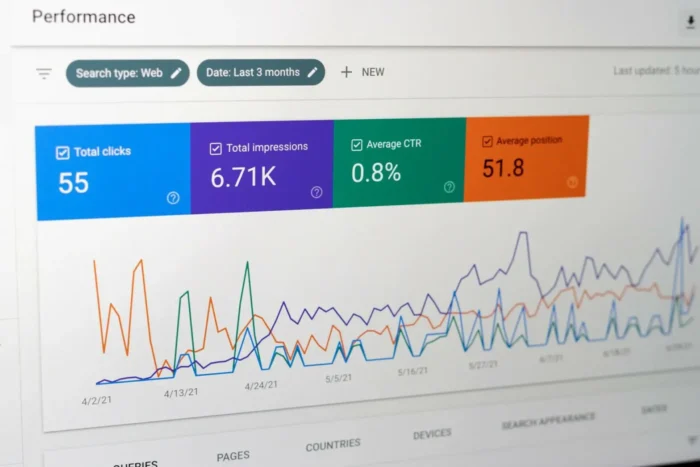
What does creating a solid SEO strategy for a medical practice, doctor’s office, or other healthcare industry business take? The ultimate goals of improved search engine rankings, targeted website traffic, and increased potential patients calling for information or appointments are all possible if you organize and analyze what people want every time they search online.
For a geographically targeted business in the medical industry, local SEO practices represent the most robust foundation of a multi-faceted strategy. For example, while some people may search for information about their symptoms or diagnosis, they do not always become patients quickly. So, instead, focus on getting the attention of those who search for phrases like “doctor’s offices near me” or specialist terms combined with a city or a town name or the local zip code.
Very few people search for medical help far from where they live or work. If you want quality attention from local people who need the health services you provide, your medical office needs to appear at the top of search results and on Google Maps, for that you would need the best SEO agency.
How do you make this happen? How can your medical practice show up more often in front of people who are most likely to need the type of care you provide? It all comes down to a robust and diverse SEO strategy.
Start With an Audit of Current SEO Performance

Just like a doctor runs tests and asks the patient questions about their current health, an optimization expert looks at the existing reach of your medical practice to determine what to do next.
According to Digital Authority Partners, you cannot improve if you do not understand the baseline. An in-depth audit involves looking at traffic data from Google Analytics or other sources, searching the website, social media pages, and directories for errors or omissions, looking for technical problems, and comparing your status against the competition.
Dive Deeper Into Local SEO Efforts
Before the auditing process is complete, pay special attention to local visibility. This awareness ensures the traffic you receive comes from a region your medical practice serves.
Also, take the time to examine your business listings on local business directories like Google My Business, Yelp, and Healthgrades. Double-check your name, address, phone number (NAP), and other contact information. For best results, it must match exactly everywhere it shows up on the Internet.
Triage Issues and Make Improvements Based on Priority Data

SEO encompasses so many potential actions. For example, you could write a new blog post with high-value keywords, create a backlink to an article from four years ago, post and share information on social media, or speed up the image load time on your website by one second. You want your actions to make the most significant difference possible.
Like in medicine, when you figure out the best treatment for a patient, you need to decide on the most effective optimization strategies. Proactive SEO gets excellent results. Still, it would be best always to determine your following action from the data. For example, write another one if you get a lot of traffic from well-keyword posts. You probably will not get the same results from a four-year-old link.
Google Wants Relevancy, Accuracy, and Consistency
As mentioned above, your NAP must look the same everywhere you post online. Pay attention to abbreviations in your address, parentheses, dashes in your phone number, and the legal name of your medical practice. Any discrepancy leads to a presumed lack of trust.
According to the search engine bots, how can anyone trust you to deliver quality healthcare services if you cannot get the essential information about your organization correct? The ability to market intelligently is also a sign of efficiency, which people who need a doctor appreciate.
The gold standard for all search engine optimization is relevancy. Google experts carefully create and update the algorithm to maximize the chance that a person searching finds what they need. When you list your practice on high-quality directories with accurate and up-to-date information, it helps convince the search engines that you have what it takes.
Always Track Data and Analyze Changing Results

You would not diagnose someone with severe disease, give them some medication, and never schedule a follow-up appointment to see if they are feeling better. It takes similar ongoing care to nurture your SEO strategy.
Google Analytics and other online tools help you understand everything from keyword traffic to website visitor to lead conversion. These basics only scratch the surface of the type of data you should track. The more you know, the more improvements you can make, and the better results you will get now and in the future.
Once you have information about your current SEO status, have identified potential issues, and prioritized changes along the way, you need to know the strategies that will help you get more attention from people looking for medical care.
Keep an eye on your competition – Stay up-to-date on what your competition is doing by monitoring their SEO rankings and activities. This will give you insights into what strategies are working well for them so you can adapt and improve upon them for your own website
Options include perfecting your Google My Business and other local directory pages; using a title, meta, header, and image tags effectively; updating your website architecture, adding a site map, and reducing load times; creating relevant and high-quality content both on and off the website; and making it extremely easy for site visitors to find what they want and to contact you for an appointment.
In most cases, hiring an experienced and professional digital marketing team to tackle your ongoing optimization tasks makes sense. After all, you must concentrate on treating patients and managing your medical office. While some of the tasks listed above can be completed quickly and have fast results, most are longer-term plans.
You cannot build an effective SEO strategy for a medical practice once and then leave things alone. The algorithms and competition change constantly, and if you do not take continuous action to improve, you will lack the competitive edge that makes your healthcare business successful.
It is abundantly clear that SEO will continue to be a vital part of any website’s success in the coming year. By 2024, we predict that the landscape will have shifted slightly, with more focus on quality content and user experience. However, the tips and tricks outlined in this article will still be relevant and useful in preserving your website’s SEO rankings. So make sure to bookmark this page for future reference!








